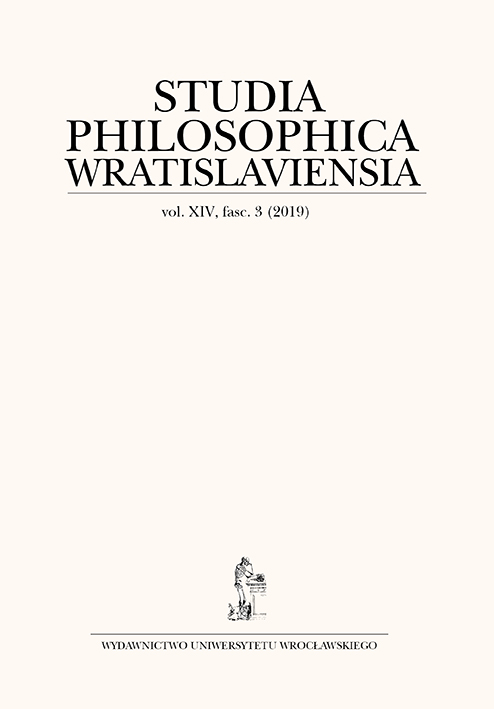

ARTYKUŁY

Neo-Kantian in the Psychological Laboratory — Richard Hӧnigswald’s Research on the Principles of Mental Being
The specificity of Richard Hӧnigswald’s attitude to the issues raised in the Neo-Kantian philosophy was clearly visible in his approach to psychology. First of all, this covered the question of the objectivity of cognizance. Like other Neo-Kantian philosophers, Hӧnigswald undertook in his work both the problem of the relationship between philosophy and psychology and the problem of psychologism. Unlike the representants of both Neo-Kantians schools, he took up psychology practically. In the years 1916–1930 he led the psychological laboratory of the Philosophical Seminar at the University of Wrocław, where he conducted a study of the process of thinking. Hӧnigswald took up psychology as he intended to expand the question of objectivity by the subjectivity conditions of cognizance, among which the most important was a synthesis in the way that Kant used this term — primary apperception, i.e. the unity of Self-Knowledge. According to Hӧnigswald, there is no knowledge beyond the knowing subject — an experience centre in which cognitive acts take place. In this way, Hӧnigswald extended the epistemological questions by the notion of ontology of thinking — the theory of mental existence.